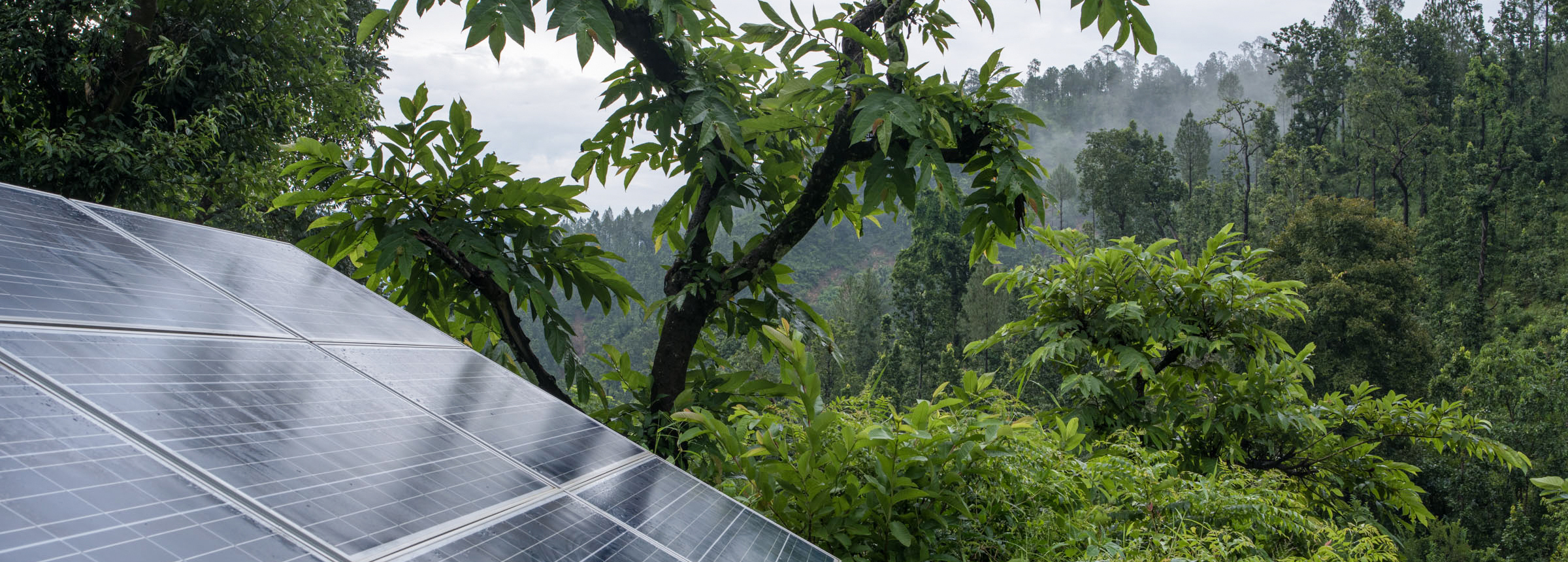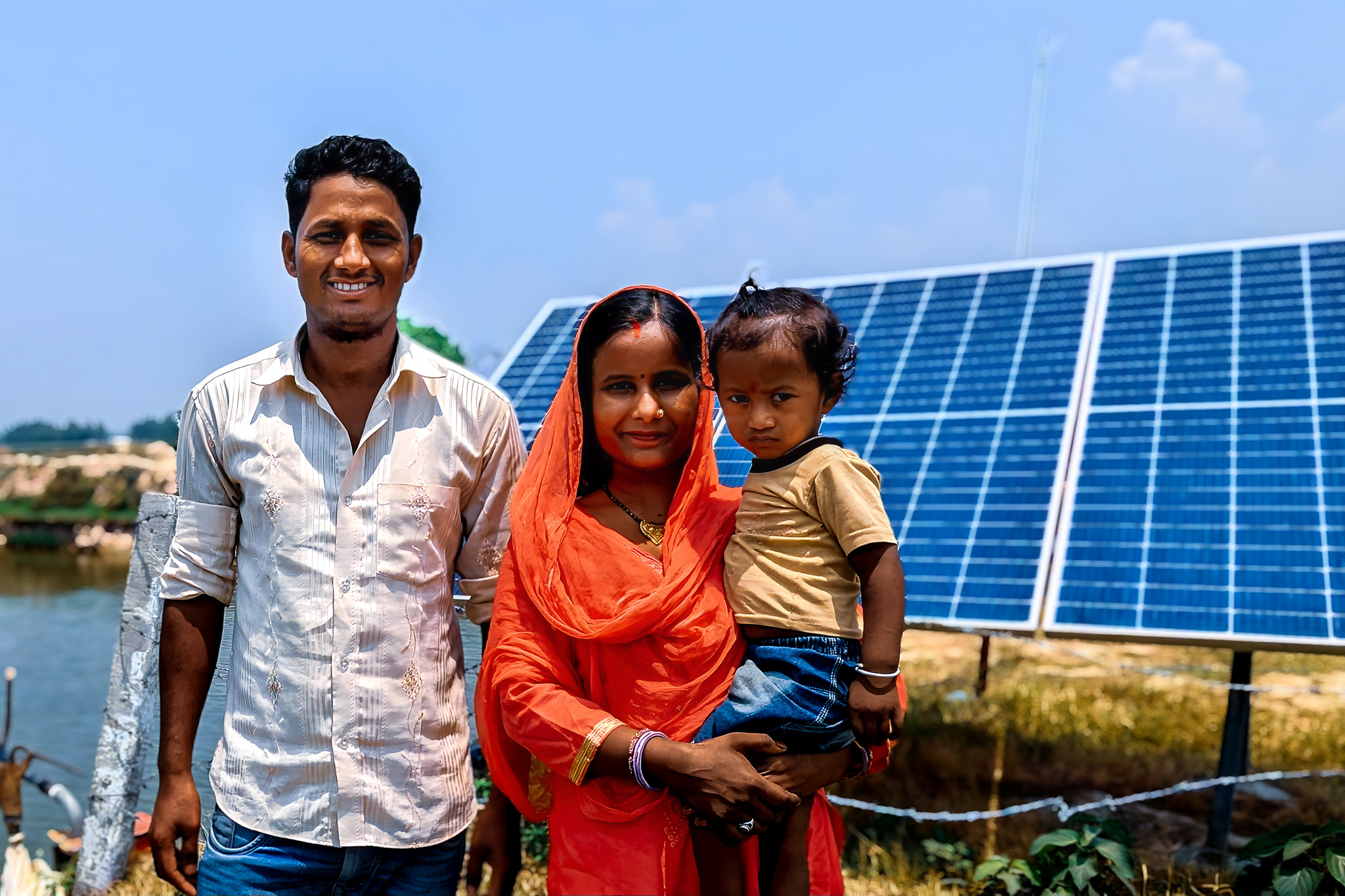
The solar advantage: Empowering returnee migrants in Nepal
This post was originally published on www.nrepnepal.com
In the rural landscapes of Nepal, where farming heavily depends on erratic monsoon rains, the introduction of solar irrigation pumps is revolutionizing agricultural practices. This transformation is particularly impactful for returnee migrant workers like Mr. Ram Pratap Sahani and Mrs. Binita Kumari Sahani, residents of Ishworpur in Sarlahi. Their family enterprise has experienced a remarkable turnaround thanks to this technology.
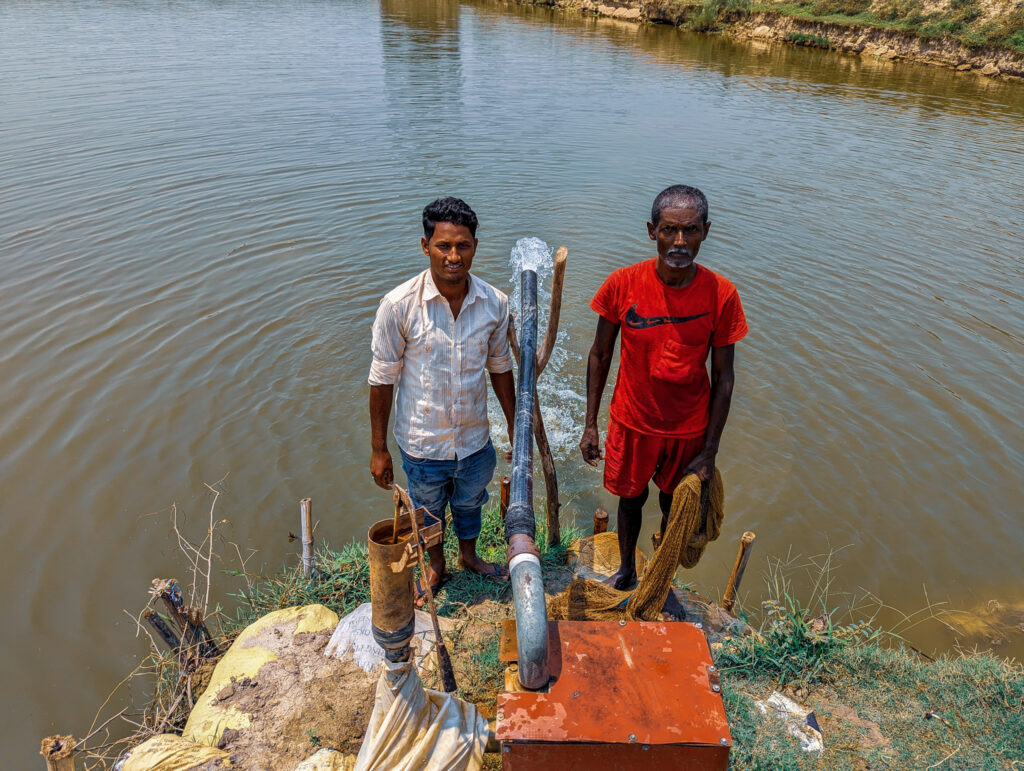
Mr. Sahani, who once worked abroad to support his family, returned home with the hope of building a sustainable future. Managing a business centered around their 2.5-acre fishpond, the Sahanis previously struggled with unpredictable weather patterns and reliance on monsoon rains.
“Before the solar pumps, we were completely at the mercy of the monsoon. Now, we have access to water throughout the day,” says Mr. Sahani, reflecting on the transformative impact of renewable energy on their lives. “As you can see, there are so many ponds in the area that have gone dry,” Mrs. Sahani remarks, pointing to the parched ponds nearby. “This is due to the weather and the lack of capital to install pumping technologies.”
Fish is in high demand in the Nepalese market, and the Sahanis now conduct transactions worth NPR 2,000,000 from their pond annually. Clean, efficient, and reliable, these pumps have revolutionized their farming practices. “With access to water throughout the day, our fish yield has improved, and our farm has flourished a lot,” Mrs. Sahani observes, highlighting the thriving fishpond.
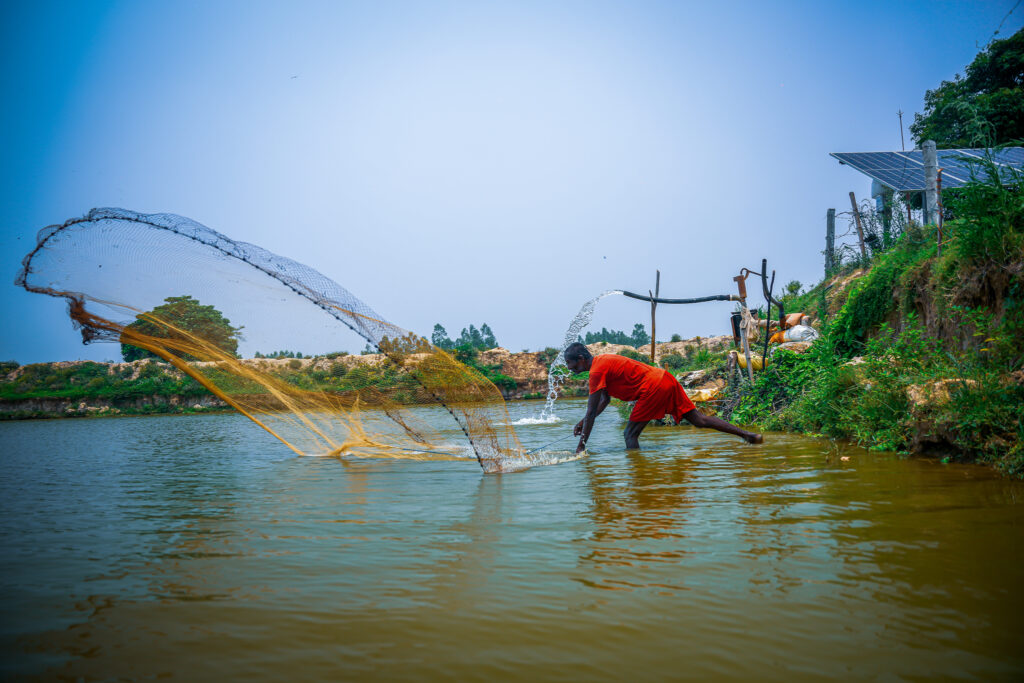
The couple purchased the solar water pump through credit financing from Mero Microfinance as a part of the project awarded by the Government of Nepal’s Sustainable Energy Challenge Fund’s (SECF), Demand Aggregation window, which focuses on promotion and market development of Solar Irrigation Pumps. To date, 28 farmers have benefited through this project. By adopting this sustainable practice, they have enhanced rural prosperity, resilience, and are taking steps towards poverty reduction while combating climate change.
“Our land would have remained barren if we hadn’t discovered this technology and received a loan,” Mr. Sahani emphasizes. “We would never have been able to afford a diesel pump, and we do not have access to the national grid as well,” he adds. “I am so happy that this new system can reach even remote farms like ours.”
Access to reliable energy is a game-changer for remote and underserved communities, providing a foundation for sustainable development. In a country grappling with a migration crisis, initiatives like this are crucial in retaining local talent. “With sustainable farming options available, young people can now envision a future in agriculture right here at home,” Mr. Sahani remarks, having returned home with bitter experiences as a migrant worker.
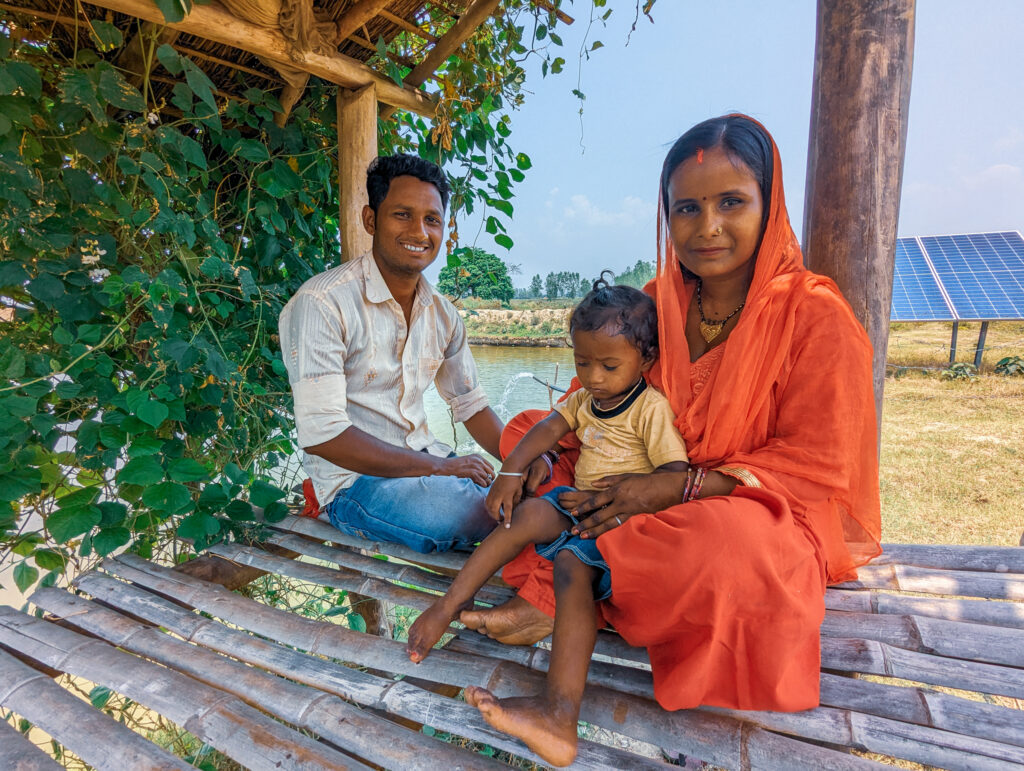
Renewable energy technologies like solar irrigation pumps not only empower families like the Sahanis but also contribute to environmental sustainability and national development. As more farmers adopt these technologies, the collective impact can drive positive change, fostering rural development and reducing poverty. These efforts align with the United Nations Sustainable Development Goals, particularly Goal 7 (Affordable and Clean Energy) and Goal 13 (Climate Action).
SECF is a challenge fund mechanism promoted by the Government of Nepal through the Alternative Energy Promotion Centre with technical assistance from the NREP and financial support from the UK in Nepal. NREP is a Government of Nepal programme implemented by Alternative Energy Promotion Centre, and a consortium led by DAI Global UK and including Winrock International. SECF is funded by the UK Government through the British Embassy in Kathmandu UK in Nepal.
Related Projects
